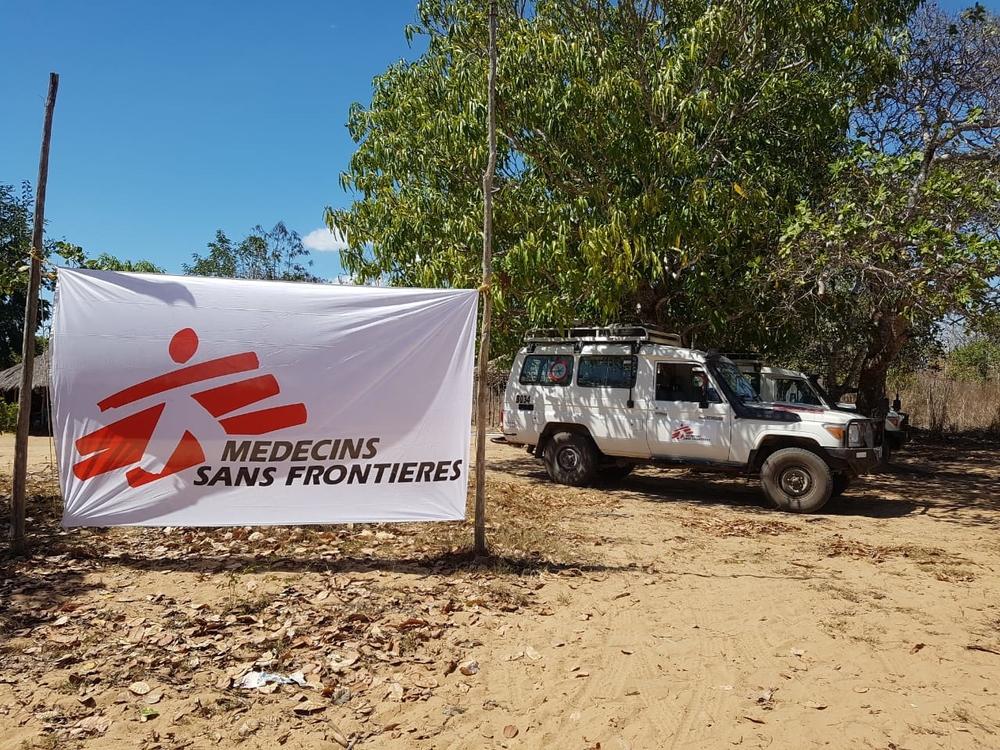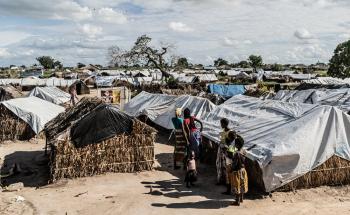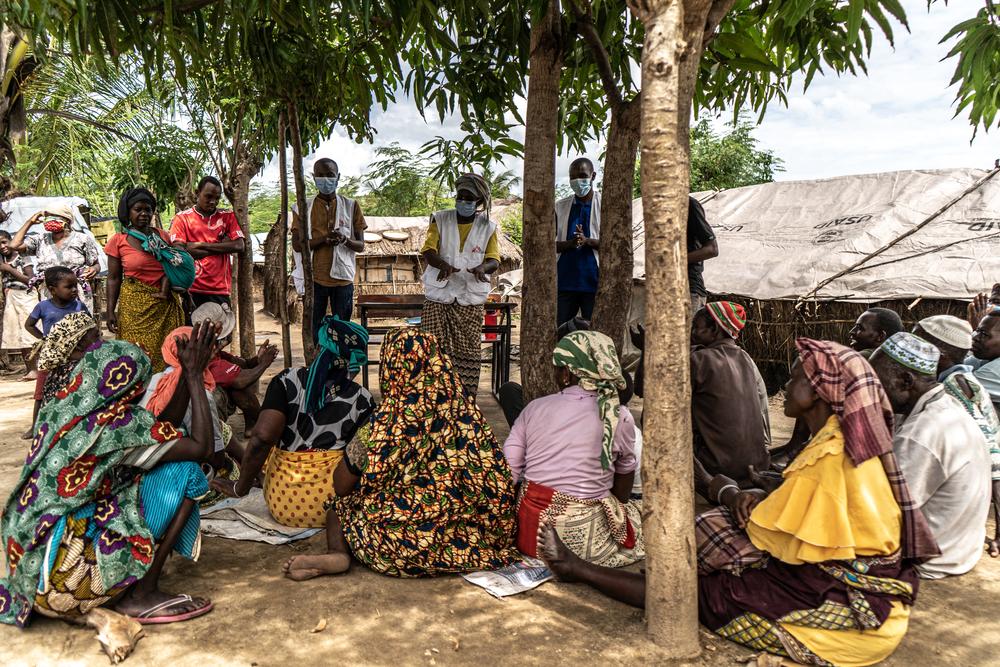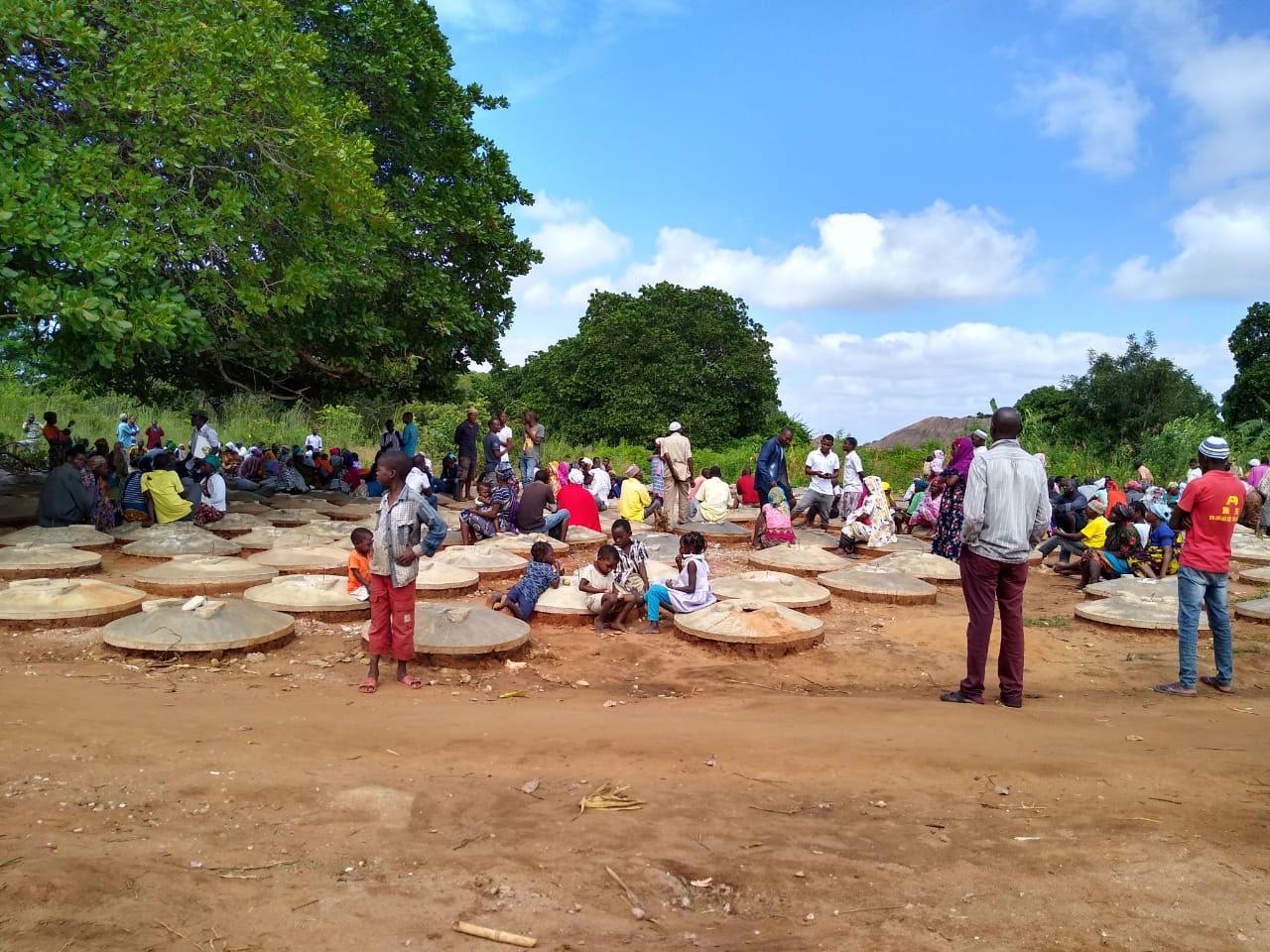Half a million people who have fled violence now struggle to find housing, food and water
Every day Doctors Without Borders (MSF) teams see hundreds, some days thousands, of desperate yet determined people arrive by boat, by truck and by foot to Pemba, the capital of Mozambique’s resource-rich northern province, Cabo Delgado, and other nearby towns. They have left everything behind to stay alive.
They all have a terrible story to tell – a decapitated husband, a kidnapped wife or a son from whom they have no news. The insurgents attacked their village, burned down their house, took away their meager possessions.
Caroline Gaudron, MSF Strategic Support to Mozambique, gives an overview of the situation in Mozambique.
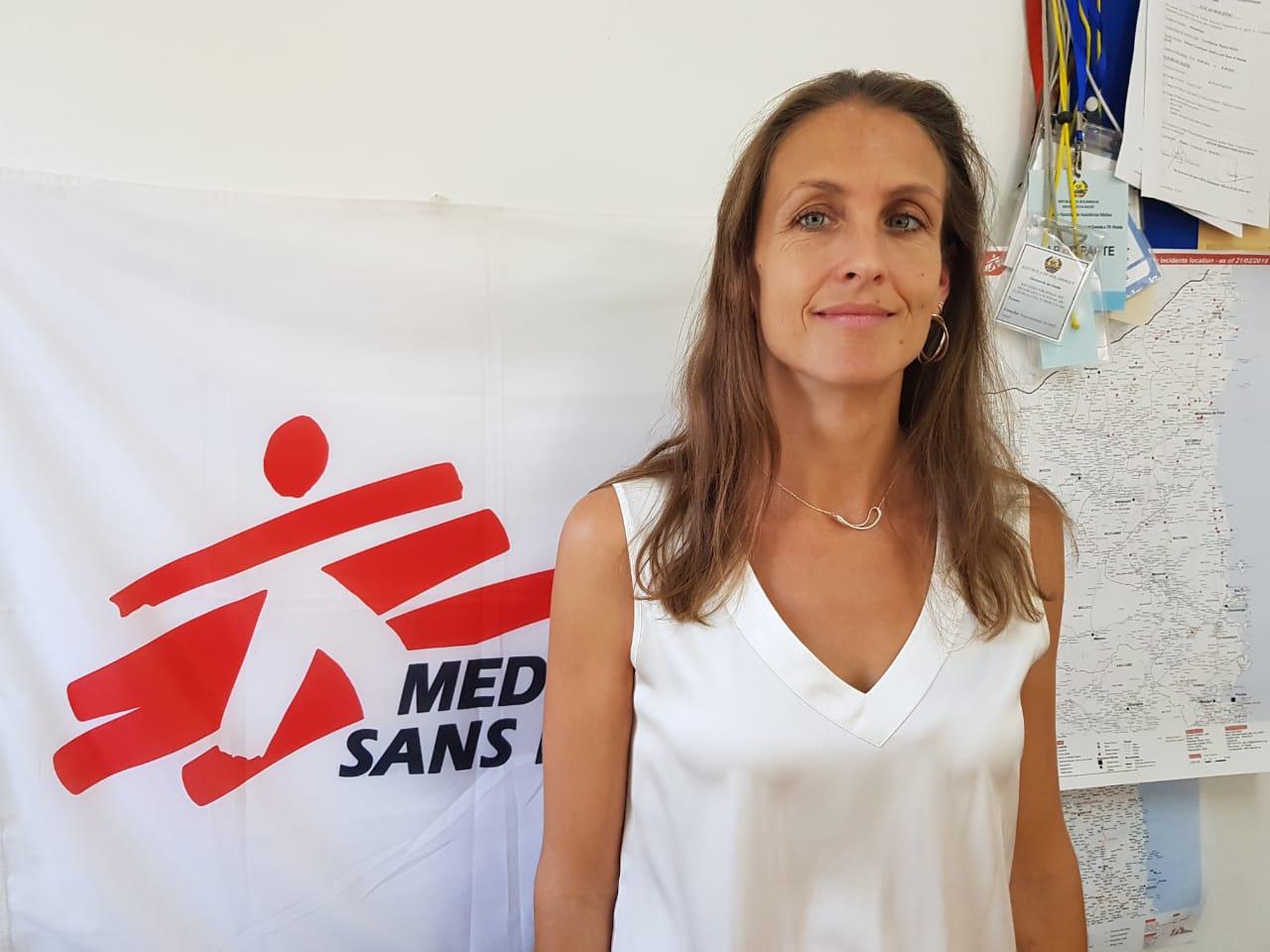
Since the first attack on Mocimboa da Praia in October 2017, Cabo Delgado has been ravaged by fighting between the Mozambican army and a non-State armed group called Al Shabaab. In recent months, it seems the violence and living conditions are worsening.
This seemingly blessed region, with white sand beaches and turquoise water, now more resembles hell for many of its inhabitants. The daily life of the people caught in the crossfire consists of ambushes, assassinations, looting and kidnappings.
Those who can flee – a half a million people already have. But what about those who cannot leave their villages? Some have gone without electricity for months. Administration buildings, schools and health centres have been closed for even longer. A trip to farm your field means risking a bad encounter and perhaps never coming back. These people are simply trying to survive the nightmare that has lasted more than three years.
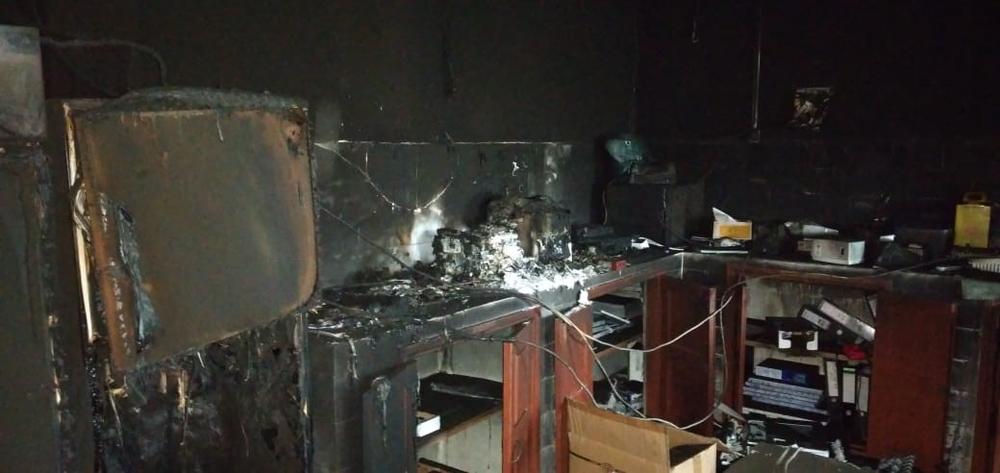
Health care workers have not been spared from the violence. In May, insurgents attacked the health centre in Macomia where MSF worked. Some of our staff were sleeping at home and ran with their families into the bush. Others were working and had to flee without their families and hide.
Some of our colleagues remained hidden days and nights in the bush on the top of a hill, where they watched what was happening in Macomia below and saw their own homes burning. It took several days for some of them to arrive in Pemba in terrible shape. We were calling all of them to get news every day, but their phones were ran out of battery. After several days, we finally received the good news that they all had survived.
Fleeing means leaving everything behind, taking only a few things, leaving without knowing whether it will be possible to return one day. It also means undertaking a journey fraught with pitfalls. Most of the people of leave are women and children. Many of them walk for over 200 kilometres, their belongings on their heads, a baby hanging on their back, a little one in their hand. They spend the nights outside.
They are in hiding, fearful of being seen by a group of insurgents or running into soldiers who may suspect them of being insurgents themselves. Both groups wear the same uniform and are nearly impossible to distinguish between.
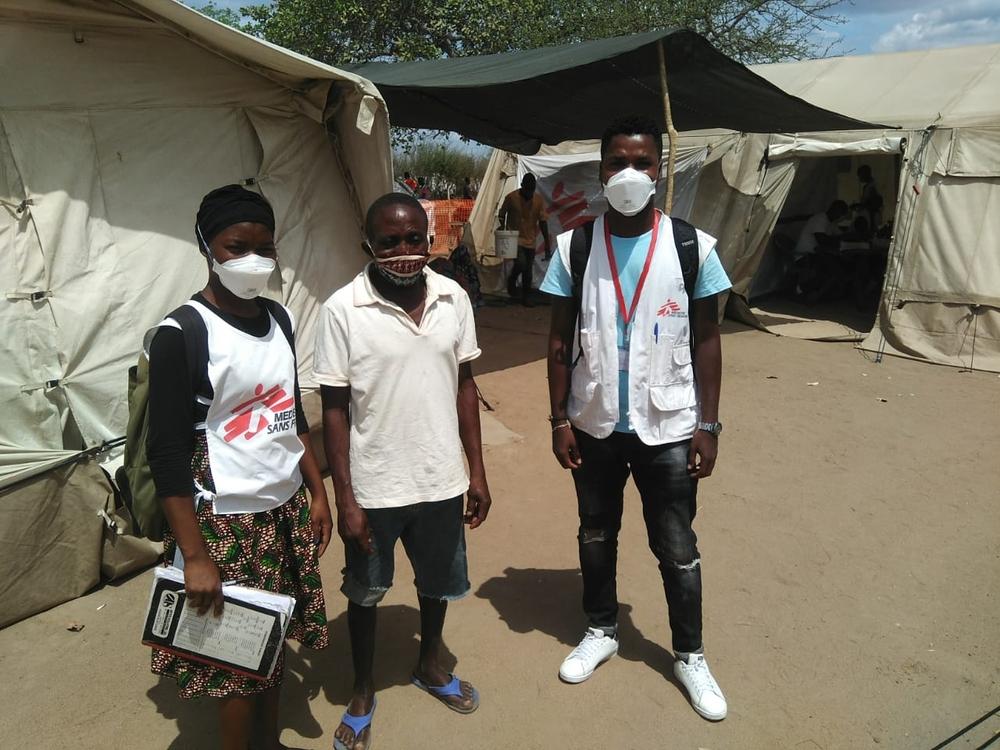
When possible, people prefer to make the journey in chapa or truck, crammed with others who share the same destiny, alongside packages and animals. Others choose to embark on a fishing boat that threatens to sink under the weight of its many passengers at any moment and which does not protect them from an attack, since the insurgents also move by sea, travelling from island to island.
On November 1, Cabo Delgado made international news when 40 people reportedly drowned when an overloaded boat hit rocks and sank between Ibo and Matama islands. Other boats saved 32 of the passengers.
After all this suffering, the displaced people finally reach their destination to find, most of the time, total destitution and misery. If they are lucky enough to be greeted by relatives or friends, they may be given a little place in a crowded house, where they will share the modest food supplies and amenities with their generous hosts and often two or three other families. But the majority of people are not so fortunate.
Thousands of people are stranded in makeshift camps. They take shelter in schools that fill up quickly and then around them, under plastic sheeting or tents crowded with several families. The sanitary facilities are insufficient, and the lack of drinking water is dramatic – the perfect conditions for a cholera outbreak.
Overcrowding also increases the risk of transmission of diseases like measles and COVID-19. The rainy season recently began, and people without mosquito nets risk contracting malaria. Those with chronic diseases, like HIV, can’t get medications.
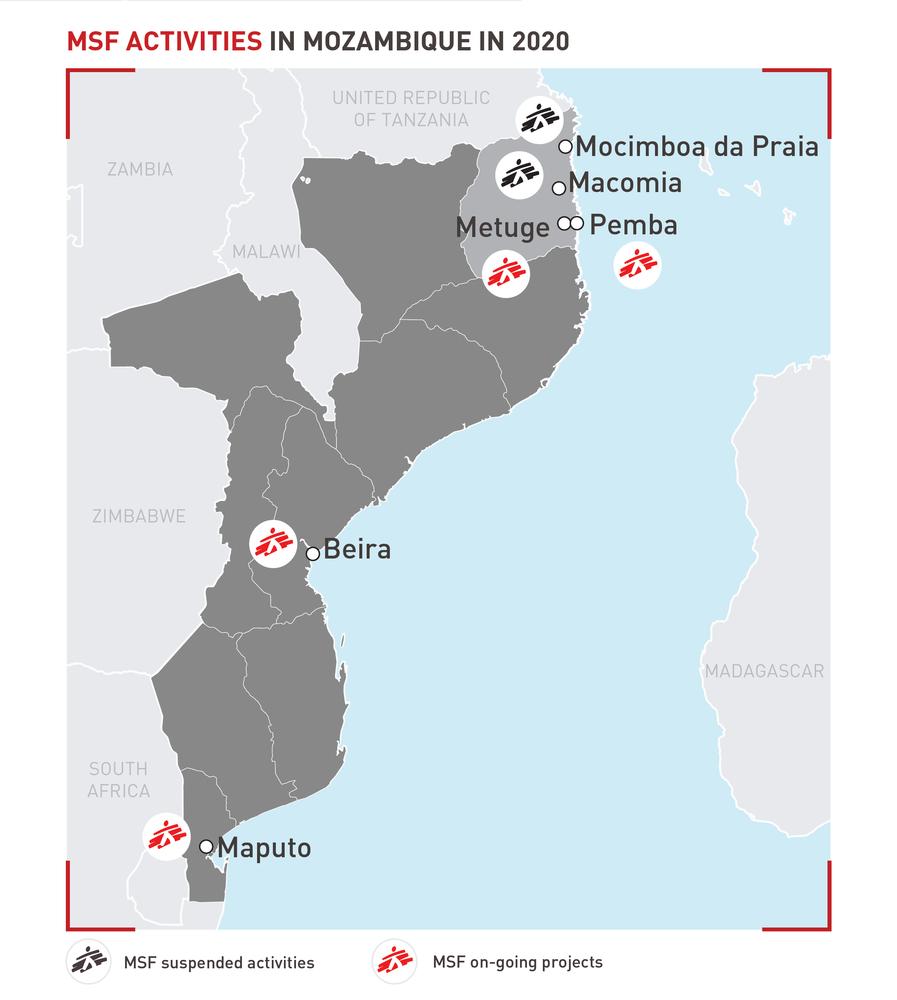
These communities have neither the infrastructure nor the resources to accommodate the influx of displaced people: their fields do not produce enough food, water is scarce, local health facilities are overwhelmed. They do what they can, but tensions rise under the pressure.
Local authorities have made major efforts but cannot cope with the catastrophic demand. Local and international non-governmental organizations are trying to deal with the most urgent needs, but are far from covering the extent of the crisis.
At MSF, we have launched several mobile medical teams that go to different camps and do thousands of medical consultations while health promotion teams provide public health information. We also have teams of specialists in logistics, water and sanitation, who are building latrines in the camps and providing drinking water.
It is good and important work, but it is just a drop in the bucket. There are thousands of people who we cannot reach. A tragedy is unfolding before our eyes: an incessant influx of new people with growing needs and clearly insufficient humanitarian aid to help them.
The demands are just too vast, and the humanitarian workers, supplies and funding are too scarce. The obstacles to bringing in more humanitarian assistance so far we have not been able to overcome. Things will have to change and soon!
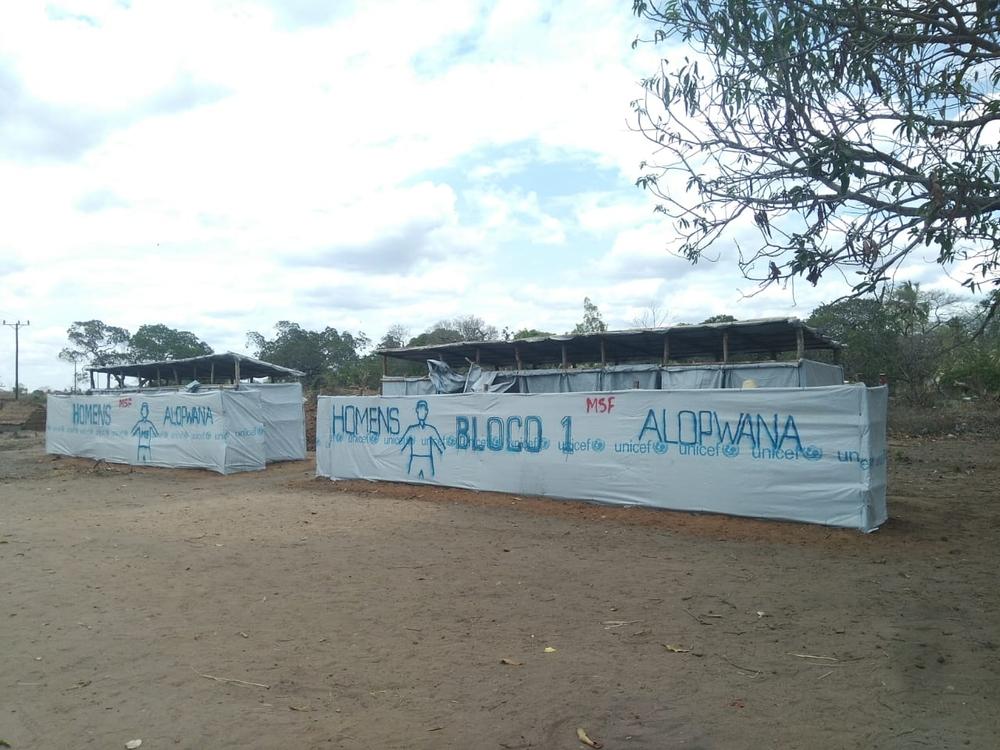
After surviving unimaginable violence and a treacherous exodus, hundreds of thousands of Mozambicans now must contend with terrible diseases and hunger, and yet it feels as though their stories have been overlooked by the international community in the wake of the COVID-19 pandemic.
I call on the international community to join MSF in recognizing the urgent crisis in Cabo Delgado, and the Mozambican government to facilitate the response of international humanitarian organizations before it is too late.
Caroline Gaudron has worked with international organizations since 2003. She started her career working in CAR and Indonesia. Since 2006, she has worked for MSF as a project coordinator and head of mission in Ivory Coast, DRC, Guinea, North Sudan and Mozambique. She is currently serving as MSF’s Strategic Support focusing on Cabo Delgado. She spent six years working in Mozambique and has followed the conflict since the first attack in October 2017. She also holds a masters degree in Contemporary History, Political Sociology and Human Rights.
